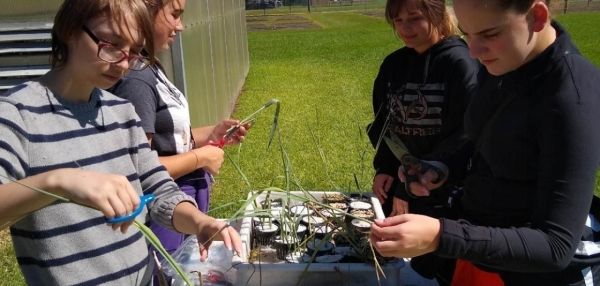As the land subsides, sea level rises, and less sediment reaches the Gulf of Mexico from the Mississippi River each year, these changes threaten the livelihoods and cultures of coastal communities — not to mention some of the country's most valuable energy and fisheries industries.
The next generation will not only need environmental solutions, but a diverse set of problem-solving skills that will help them navigate a changing world. Calcasieu Parish Schools, McNeese State University Naturelab, and the City of Lake Charles Tuten Park partnered on a Gulf of Mexico B-WET grant to provide teachers and students with the tools they need to respond to this issue.
In classrooms across Lake Charles, Louisiana, schools are cultivating bitter panicum, a native coastal grass, and Gulf killifish, a native coastal minnow, in their own aquaponics systems. Aquaponics is a form of aquaculture in which the waste produced by farmed fish supplies nutrients for plants grown hydroponically, which means that the plants grow without soil. The plants receive nutrients from the water which, in turn, purifies the water. Combining biology, chemistry, math, and engineering, this project provides students with a “Meaningful Watershed Educational Experience,” the hallmark of the B-WET program, which includes learning STEM both inside and outside the classroom.
Continue reading at NOAA
Image via NOAA


